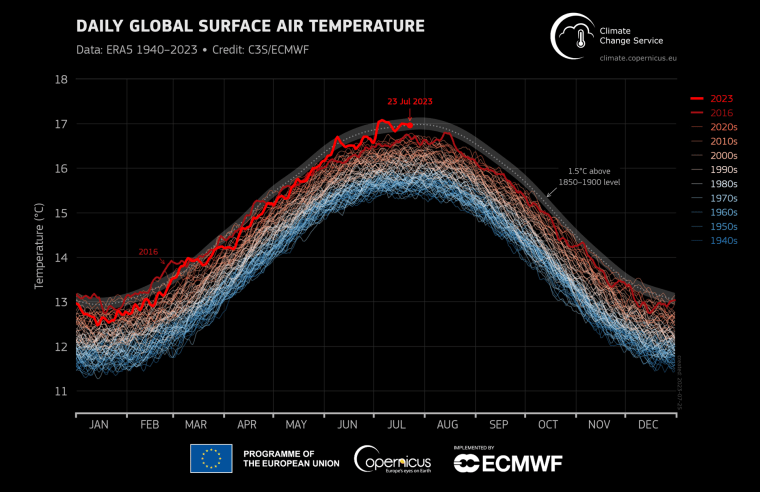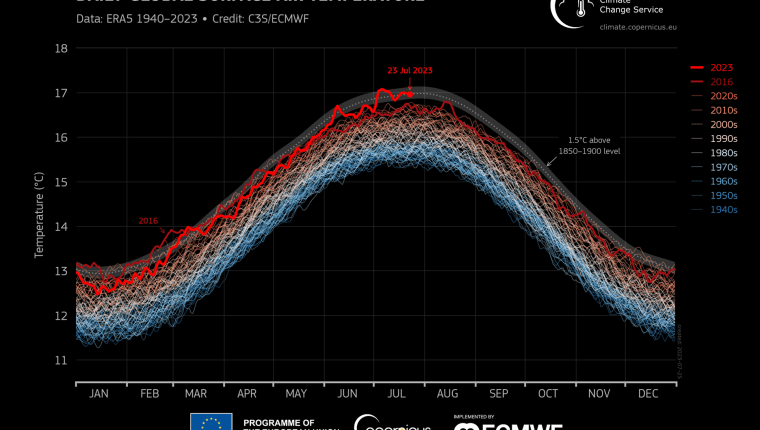The first three weeks of July have been so warm that it’s almost certain the month will become the hottest ever recorded, the World Meteorological Association announced Thursday.
Last month was the hottest June ever.
“Record-breaking temperatures are part of the trend of drastic increases in global temperatures,” Carlo Buontempo, the director of the Copernicus Climate Change Service, said in a news release, adding that human-caused emissions are the “main driver” of rising temperatures.
Copernicus, part of the European Union’s space program, performs satellite observations of Earth. The new monthly record is based on climate reanalysis data, which combines on-the-ground observations, satellite data and climate modeling to produce estimates of temperatures across the Earth that date back decades. The approach fills gaps in the observational record, and it is used by scientists worldwide to evaluate the impacts of climate change.

The data says global mean temperatures on Earth’s surface were just above 62.5 degrees Fahrenheit through Sunday, exceeding the previous high of 61.9 degrees from July 2019.
The Southwest U.S. and southern Europe have experienced concurrent, historic heat waves this July that would have been “virtually impossible” if not for climate change, according to a recent attribution study led by scientists who study the probability of extreme weather events. A third heat wave in China would have been an extremely unlikely event if not for global warming, the group found.
Extreme weather has made headlines all summer in the U.S. The country has endured a summer of smoke from record-setting Canadian wildfires, flood-causing bouts of extreme precipitation in the Northeast and hot tub temperatures along the Florida coastline.
“The extreme weather which has affected many millions of people in July is unfortunately the harsh reality of climate change and a foretaste of the future,” World Meteorological Organization Secretary-General Petteri Taalas said in a news release.
Source: | This article originally belongs to Nbcnews.com









